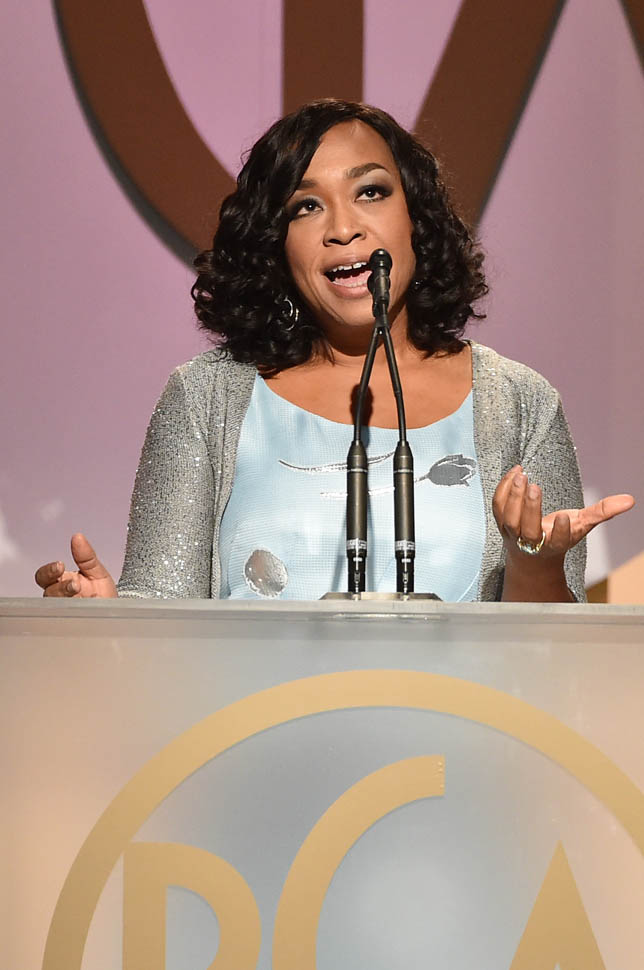
Last night the Grammy’s were awarded in Los Angeles. Taylor Swift won for album of the year, for a second time. Her acceptance speech was all over social media this morning. Most reviewers called it a rebuff to Kanye West, who famously jumped on stage after her win at the VMAs to announce to the audience that Beyonce “had one of the best videos of all time.” Understandably, Swift did not know how to respond then, but she sure handled herself with confidence last night. And today, she is a social media darling.

Contrast Taylor Swift’s speech with the acceptance speech given by Shonda Rhimes after receiving the Producers Guild’s Norman Lear Award for Achievement in Television. “I’m going to be totally honest with you, I completely deserve this.” And she does! The speech was tongue and cheek. She goes on to explain that she was not blazing trails but simply representing the world as it actually is. When you really listen to the content of the speech, it is incredibly modest, almost self-deprecating.
Both speeches were given by incredibly successful women, leaders in their fields. Taylor Swift accepts that she is the master of her own success while Rhimes argues that she was doing ‘nothing special.’ Both have a clear message for other women, be strong and show your stuff. I found these both to be interesting examples because one is clearly confident and the other clearly modest.
There is a phenomenon is social science that I have written about before, the feminine modesty effect. Typically women underrepresent their accomplishments relative to men. Similarly, women who self-promote often experience backlash, suffering social consequences. From these two isolated cases, Swift has managed to take full responsibility for her success and still maintain her image as a likeable celebrity. How did she do that? Could Shonda Rhimes have succeeded with the same strategy?

No Comments so far ↓
Like gas stations in rural Texas after 10 pm, comments are closed.